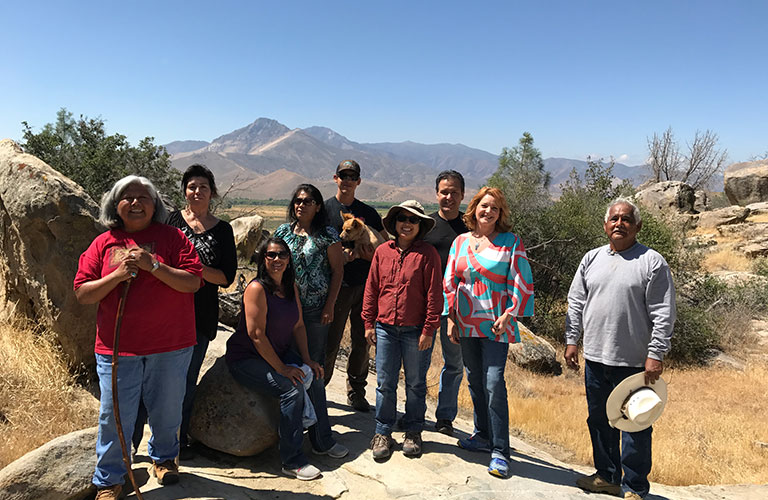Climate Conversations: Tubatulabal Tribe
The Tubatulabal Tribe welcomes the Dept. Water Resources team in June 2017, to share tribal ecological knowledge on climate change in California.
By Elissa Lynn
The Tubatulabal people have lived in the stark, captivating foothills of Mt. Whitney for thousands of years. The name Tubatulabal means pine-nut eater. Ground using rock and stone after gathering, the pine nuts were the staple of existence, eaten with local proteins such as fish, rabbit, deer, and quail. Their ancestors found the pine nuts at a lower elevation than current tribal members; a sign of a warming climate. An extra thousand foot climb would be necessary to gather some traditional medicines.
The habitats are also drier, and that’s saying something. The South Fork of the Kern River is already one of the driest in the state. Local rainfall is less than 10 inches per year, on average. The river, however, flows all year round, and the deep green line of trees along its banks makes it easy to locate. The Kern’s headwaters lie in the southern Sierra mountains, those with the highest elevation in California. Snowpack here is less impacted by climate change, so far, than the northern Sierra, because the southern mountains are taller, and therefore colder through the winter season.
And when it’s a good year, like 2017 has been, even local creeks that have dried up during the drought are flowing. But the Tubatulabal say this year is an exception; the trend during their lifetimes is toward drier conditions. Habitats have shifted. They can’t locate the plants in the same locations as their ancestors; saltgrass, wild onions, watercress, mud wart, mountain mint, jibson and tule.
Still, they celebrate this one good year with thanks. The yearly Bear Dance had higher attendance than recent years; dancers and families took their place this spring in a wide circular open-air wooden gathering place to sing songs of praise, blessing and healing. They are concerned about the changes in temperature and precipitation caused by man-made global warming. Cooperation is their strongest suggestion; we all need to come together to solve problems that involve all peoples. The pine-nut eaters have lived in this beautiful and complex climate for centuries, and would like to see greater recognition and mindfulness of the environment we all share.
